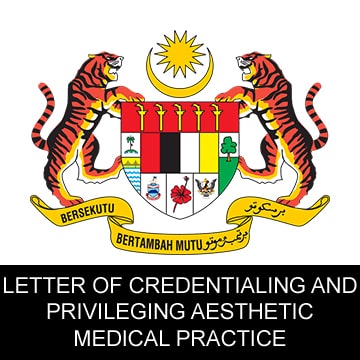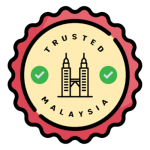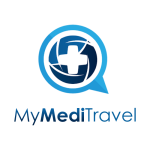The Skin
Skin First. Make Up Second. Smile Always.
Eczema
Eczema is the commonest skin inflammatory condition in the world. It causes itchy, red and dry skin at any part of the body. It usually appears in early childhool but can appear at any stage of life. The cause of eczema is not completely understood but it is likely due to the interactions between environmental factors and an overactive immune response. Eczema is also called atopic dermatitis because the word atopy means the tendency to have eczema, asthma and hay fever. Atopy is mostly an inherited condition which explains a child of a parent with childhood eczema is more likely to experience it. Below are some of the common triggers of eczema:
- fragrance
- chemicals in cleansers and detergents
- rough fabrics like wool
- excessive sweating
- sudden or drastic temperature changes
- stress
- food allergies
- animal dander
- external allergens such as pollen, dust, dust mites
Poorly controlled eczema is a burden to the patient as well as the carer. It can cause marked psychological or developmental impact on a child. It can also increase the risk of skin infection. Its healthcare cost is a considerable issue to many hence it is important to be educated on disease control and for childhood eczema, giving it a better chance to resolve spontaneously in adolescence. Effective control of eczema, apart from using the right topical or oral medications, often evolves around educating and motivating the patient or the carer on lifestyle optimization and finding the triggering causes. Once this has been reinforced, the reliance on medication can be minimized. If you would like to know more about this condition, please feel free to give us a call. We will be glad to help you.
Psoriasis
This is an autoimmune skin disorder. The word “autoimmune” means the immune system is attacking substances naturally present in the body. When psoriasis is active, it is characterized by rapid skin cell turnover and inflammation giving the skin the appearance of thick red patches with rough scales. Its appearance often results in stigmatization. The community should be educated that it is a non-contagious condition to reduce social stress amongst the sufferers. Psoriasis can be associated with other conditions such as diabetes, arthritis, inflammatory bowel disease, heart disease and anxiety. There are a few types of psoriasis such as plaque, guttate, pustular, inverse and erythrodermic psoriasis. Below are some of the triggers of psoriasis:
- stress
- injury such as a cut, sunburn, scratching
- vaccine
- infection
- medications
While there are effective therapies to control psoriasis such as topical and systemic medications as well as light therapy, the most fundamental part evolves around lifestyle optimization. We often share knowledge and empower our patients to look after themselves. You are the best doctor for yourself after all. If you would like to know more, please feel free to give us a call. We’ll be happy to shine the light for you.
Cold Sores
Herpes simplex virus (HSV) infection is common in the society. There are 2 types of HSV. Type I usually affects the face especially the lips. Type II is more common around the genital area. Having said that, both types can affect any part of the body. Once infected, a person may have fever and develop tiny blisters which break eventually to form painful sores. The sores will then dry up leading to cracks and itch.
HSV can be passed onto another person through skin contact such as sharing of food and cosmetics and sexual activities. While the symptoms may heal, the virus never gets eliminated. It merely stays dormant in the body. Cold sores outbreak may be due to weakened immune level or stress including going through illness. Other possible causes of reactivation include dental and skin treatments, sun exposure, menstruation and eczema.
Some patients may develop more severe symptoms such as difficulty swallowing or breathing and red eyes with discharge. This is more common during the initial infection and among young children. Treatment of HSV is effective with topical and oral medications. Home remedies to soothe painful sores include aloe vera gel, cold compression and petroleum jelly. Taking lysine supplement may reduce the frequency of outbreaks in some people. Are you keen to know more? Pop by at our clinics in Petaling Jaya and Puchong. Let us shine the light for you.
Rosacea
Rosacea is a chronic inflammatory condition with relapsing and remitting patterns. The persistent redness may last from weeks to months at a time before disappearing, and then returning again. It typically affects the center part of the face such as the cheeks, nose and forehead. Below are some of the signs and symptoms of rosacea:
- prominent web like broken or spider veins on the face
- redness and swelling
- dry, rough with fine scaling
- easily irritated by skincare or cleanser
- acne like papules
- rough and enlarging nose (more common in male)
- bloodshot and irritated eyes
- increased visual sensitivity to light
- impaired vision
Rosacea affects about 5% of the adult population and often starts between the age of 30 to 60 years. When it appears on the face with acne like papules, it is often confused with true acne condition except that it does not have black or white heads. Just like many other inflammatory skin conditions, its symptoms are heavily influenced by lifestyle such as alcohol intake, direct sun exposure, spicy and marinated food and etc. Science offers topical and oral medications and vascular laser therapy to control symptoms. We offer these plus lots of lifestyle tips to help you regain your confidence. If you are keen to know more, please give us a call. We look forward to sharing more information with you to beat rosacea.




